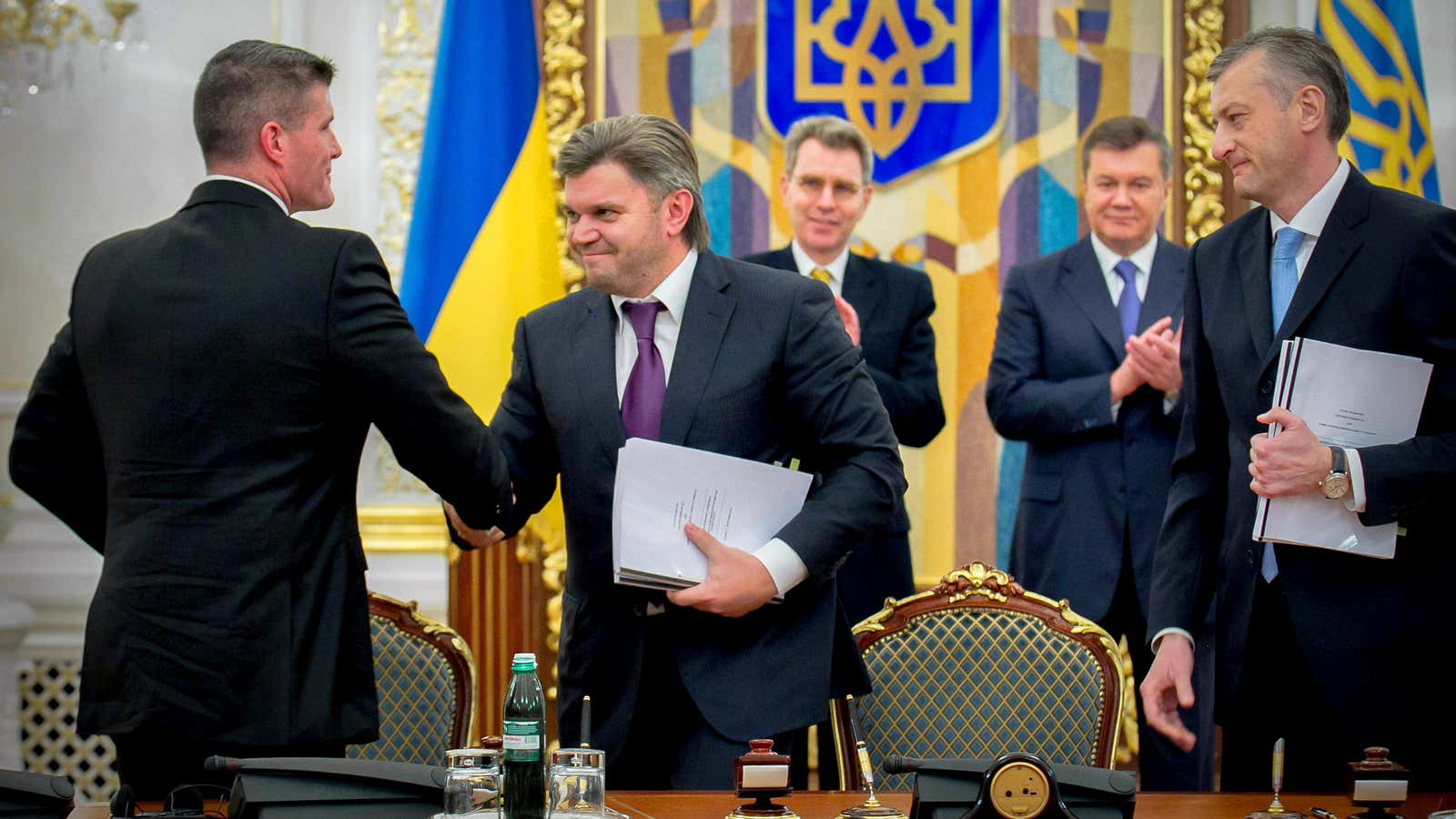Fracking, the controversial drilling technique that unlocks oil trapped in underground rock formations, is expected to help many countries gain “energy independence.” But few countries have as much independence to gain from the practice as Ukraine.
In just weeks, Ukraine is expected to sign a free trade deal with the European Union that will wrench it out of Russia’s geopolitical orbit. Russia isn’t expected to take that standing down; it’s threatening all kinds of retaliation but perhaps most importantly, promising to make the 24.5 billion cubic meters of gas it sells Ukraine each year more expensive or otherwise harder to get.
Analysts are skeptical that any kind of gas dispute will reach the level of 2009’s contretemps that shut down trade completely, impacting the rest of Europe. That’s because Gazprom, Russia’s state-owned oil giant, can’t afford to lose much more market share in the EU.
But Ukraine isn’t waiting to find out. It just signed a new $10 billion agreement with Chevron to start tapping into the country’s shale gas reserves; it signed a deal of equal magnitude with Shell at the beginning of this year. The two projects are forecast to produce 11 to 16 billion cubic meters of gas within five years, potentially more than half of what it currently imports from Russia. Russia likely won’t be happy to see western energy firms signing deals to tap Ukraine’s shale reserves—the third largest in Europe—while US ambassador Jeffery Payette looks on smiling.
Of course, exploration plans are not an immediate solution to whatever retaliation Moscow throws Kiev’s way. But they are a warning that Ukraine’s energy plans are changing and the influence of Russian gaspolitik is waning.




